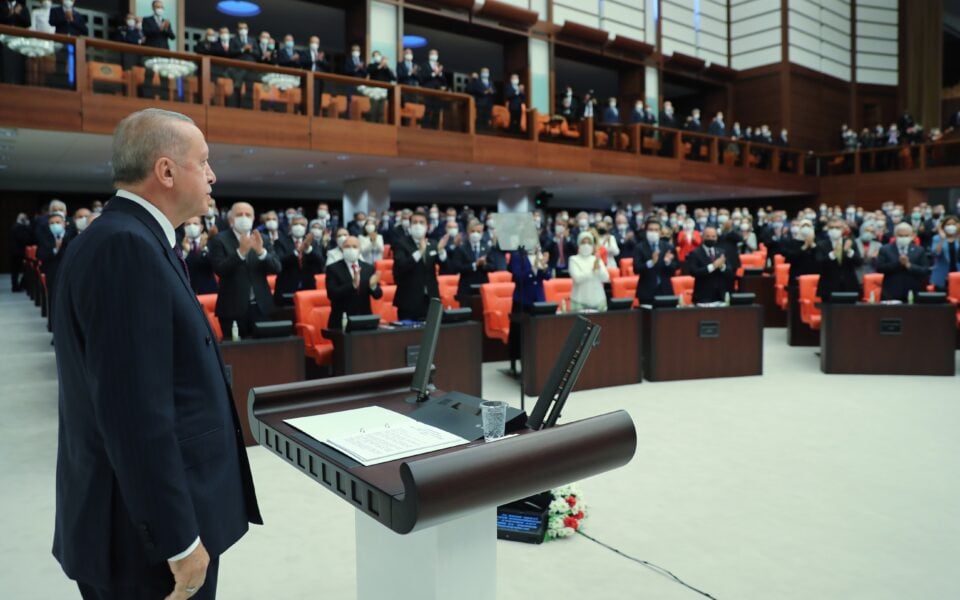
Turkish President Recep Tayyip Erdogan is seen at the Grand National Assembly in Ankara, in a 2021 file photo. [EPA]
The casus belli resolution in the Turkish National Assembly in 1995 against Greece constitutes a permanent threat against not only a NATO ally, but also a member of the EU to which Ankara looks for funding and cooperation with its defense industry.
It is, obviously, unacceptable, and its lifting (as Athens has requested in order to agree to advance the defense cooperation between the EU and Turkey) will have a symbolic value. In this light, the government is right to bring the issue to the fore.
However, the importance attributed to such a possible move by Turkey is rather exaggerated, even if well-respected, experienced diplomats of the neighboring country with particular influence on bilateral relations describe it as a “maximalist” demand of the Greek side.
The casus belli is not a Turkish government decision, nor a state law. It is a resolution adopted by members of the Turkish National Assembly. There could easily be an act that overturns it, in a goodwill spirit and with the aim of improving relations.
However, on a practical level, not much would change. None of the Turkish claims, disputes or demands would have been withdrawn. If they were, that would indeed constitute a substantive development.
The developments on the defense cooperation between Turkey and the EU creates a rather difficult environment. However, a quarter of a century after the European Council Helsinki summit in December 1999, when Turkey was officially recognized as a candidate for EU membership, the timing may once again open a window of opportunity in Greek-Turkish relations.
In the coming months, until the NATO summit and the Greece-Turkey High-Level Cooperation Council, a mutually beneficial diplomatic dynamic could develop, with the midterm aim of going to the ICJ.
In this context, it is needless to say that there should be a political consensus within the country. Parties should avoid performative opposition and accusations which would only weaken the Greek position.
For its part, the government is called upon to take the relevant initiative with moves that facilitate, not hinder, the provision of political support.
As for the opposition parties that will choose to act with the long-term national interest in mind and not the short-term partisan benefit, they should agree to a common national policy.
The aim would be to secure benefits from the interconnection of specific issues with the emerging deepening defense cooperation between the EU and Turkey, which – and this is important – despite any “security guarantees” is not easy to prevent.